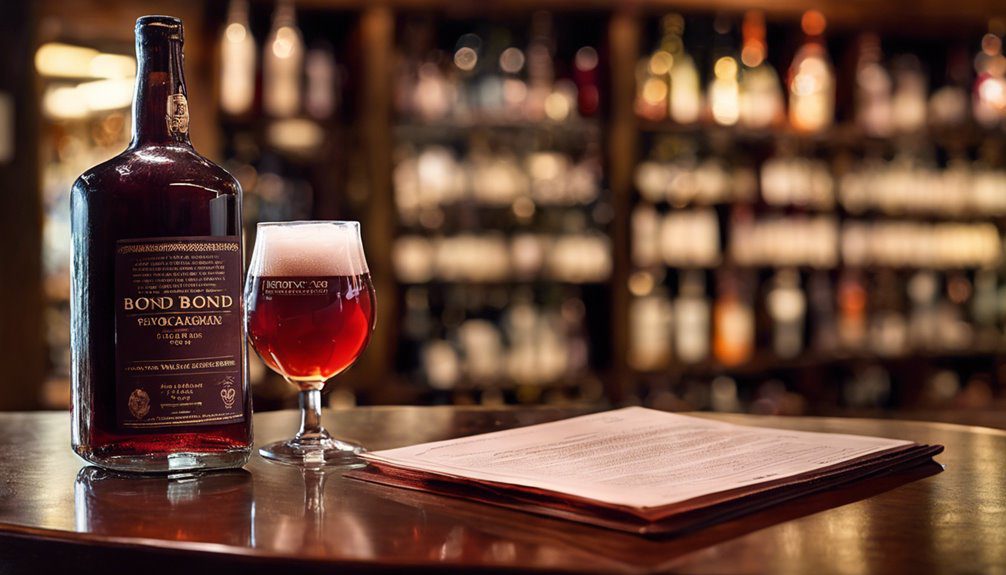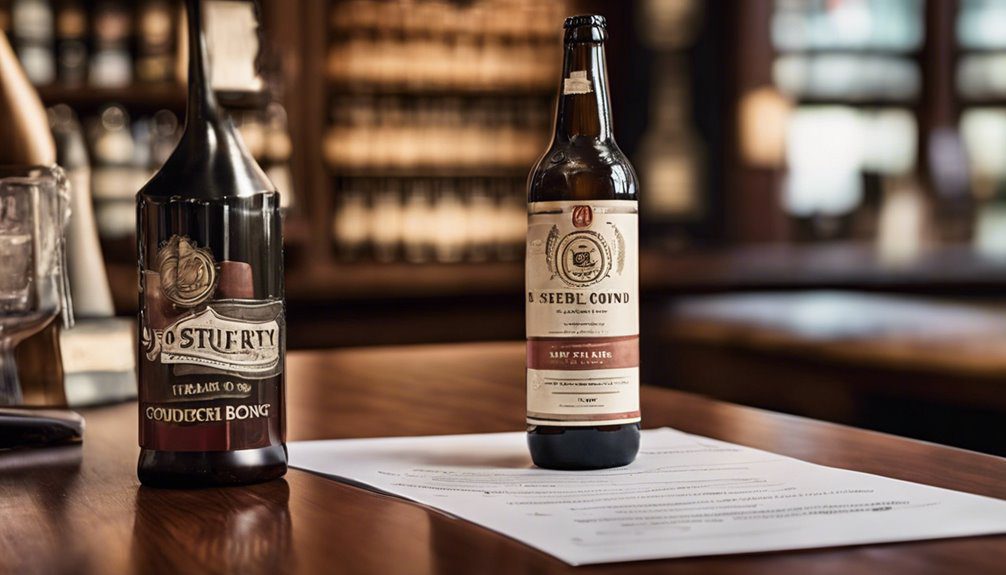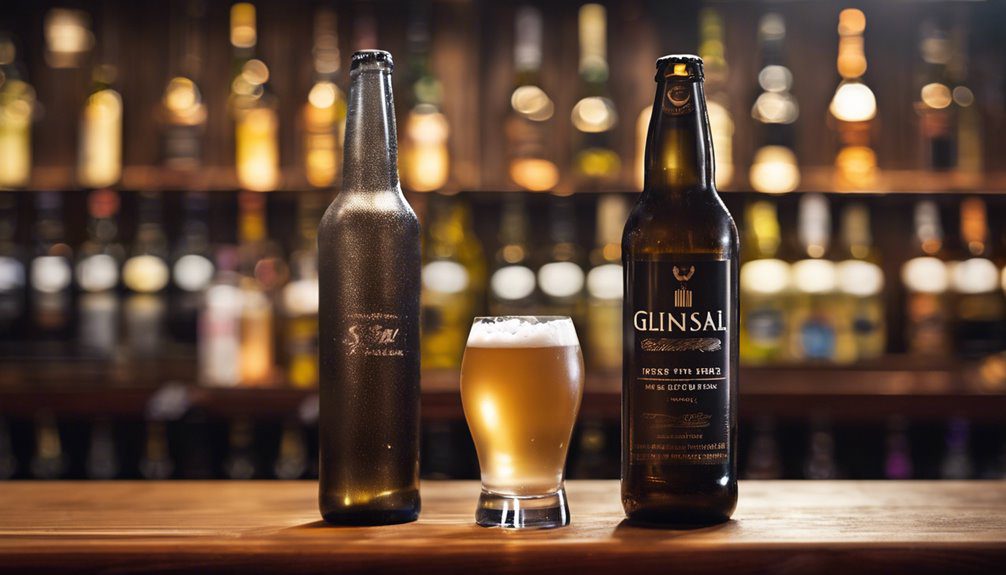When you're navigating the complexities of running a wine and beer retail business in Texas, understanding the TABC Conduct Surety Bond is essential. This bond isn't just a regulatory hurdle; it's a vital safeguard for your business against potential penalties and fines. You'll need to ensure your eligibility and compliance to secure this bond, which can significantly impact your credibility in the market. But what happens if you overlook this requirement? The implications could be more serious than you think, and it's worth considering the full scope of your responsibilities.
Understanding the TABC Bond

When you're diving into the world of wine and beer retailing, understanding the TABC bond is crucial. This surety bond is a requirement set by the Texas Alcoholic Beverage Commission (TABC) for retailers seeking a license to sell alcoholic beverages.
Essentially, it acts as a safety net, ensuring that you'll comply with Texas laws and regulations regarding alcohol sales. You'll need to secure this bond before you can officially operate your business. The bond amount typically varies, depending on several factors, including the type of license you're applying for.
By obtaining the TABC bond, you're essentially promising to adhere to the state's regulations. If you fail to comply, the bond can be used to cover any fines or penalties that might arise. Additionally, understanding the unique rules governing alcohol activities in Texas is essential for ensuring that you meet all compliance requirements.
To secure a TABC bond, you'll generally work with a surety company that evaluates your creditworthiness and business history.
Purpose of the Surety Bond
The primary purpose of the TABC surety bond is to ensure that you're compliant with Texas alcohol regulations. This bond acts as a financial guarantee that you'll adhere to state laws concerning the sale of wine and beer. By obtaining this bond, you're not just fulfilling a legal requirement; you're also demonstrating your commitment to operating your business ethically and responsibly.
If you fail to comply with these regulations, the bond provides a safety net for consumers and the state. It means that if any legal claims arise due to your actions or negligence, the surety bond can cover damages or penalties. This not only protects your customers but also safeguards your business's reputation.
Furthermore, having a surety bond can enhance your credibility with suppliers and customers alike. It shows that you take your responsibilities seriously and are committed to maintaining a lawful business operation. Additionally, such bonds serve as a financial security mechanism for ensuring obligations are met, similar to Illinois Surety Bonds.
Eligibility Requirements

To qualify for a TABC surety bond, you must meet specific eligibility requirements that ensure your business aligns with state regulations. First, you need to hold a valid wine and beer retailer's permit. This permit demonstrates your legal authority to sell these alcoholic beverages in Texas.
Next, your business must have a clean compliance history with the Texas Alcoholic Beverage Commission (TABC). Any prior violations or penalties could disqualify you from obtaining the bond. Additionally, you should be financially stable, as surety companies will evaluate your creditworthiness. A strong credit score can also lead to lower bond premiums.
Moreover, you can't have any outstanding debts or legal judgments that could hinder your business operations. It's important to remember that surety bonds require you to adhere to state laws and regulations, so being knowledgeable about these requirements is crucial for your eligibility.
Lastly, if you're a corporation or partnership, ensure that all owners or partners meet the same eligibility criteria. Meeting these requirements will help you secure your TABC surety bond efficiently, allowing you to operate your business without unnecessary delays.
Application Process
Navigating the application process for a TABC surety bond involves a few key steps that can streamline your experience.
First, gather the necessary documentation, such as your business license, financial statements, and any required personal identification. Having these documents ready will save you time and help avoid delays.
Next, choose a reputable surety bond provider. Research several companies to compare their services, rates, and customer reviews.
Once you've selected a provider, fill out their application form, providing accurate information about your business and your eligibility for the bond.
After submitting your application, the surety company will review your financial stability and business history. They may ask additional questions or request further documentation, so be prepared to respond promptly.
Once your application is approved, you'll receive a quote for the bond. This quote will reflect the level of risk associated with your industry, which can influence the bond amount required.
Bond Amount and Premiums

When securing a TABC surety bond, understanding the bond amount and premiums is crucial for budgeting your expenses. The bond amount you'll need typically ranges based on the specific requirements set by the Texas Alcoholic Beverage Commission. Generally, for a wine and beer retailer's permit, the bond amount is $10,000. This amount acts as a financial guarantee that you'll comply with state laws and regulations.
The premium you'll pay for the bond is a percentage of the total bond amount, often ranging from 1% to 15%, depending on various factors such as your credit score and financial history. For instance, if your premium rate is 3%, you'll pay $300 annually for a $10,000 bond.
It's important to shop around and compare quotes from different bonding companies. This way, you can find the best rate possible while ensuring the bond meets TABC requirements. Additionally, understanding the purpose of surety bonds can help clarify the importance of compliance with state regulations.
Compliance and Regulations
Understanding compliance and regulations is vital for your success as a wine and beer retailer in Texas. You need to familiarize yourself with the Texas Alcoholic Beverage Commission (TABC) rules governing your operations. These regulations cover everything from obtaining your permits to how you advertise and sell your products.
First, ensure you have the appropriate permits. The TABC requires specific licenses depending on the type of alcohol you sell and your business structure. Keep track of any renewal deadlines to avoid lapses in your legal standing.
Next, adhere to all local, state, and federal laws regarding the sale of alcohol. This includes not selling to minors and understanding the limits on hours of operation.
You'll also want to stay updated on any changes to laws that could impact your business.
Additionally, maintain accurate records of your sales and inventory. This documentation isn't only vital for your own management but also required for compliance checks conducted by the TABC. Furthermore, obtaining the necessary Florida surety bonds is crucial for ensuring your business meets all financial obligations and regulatory requirements.
Consequences of Non-Compliance

Non-compliance with TABC regulations can frequently lead to serious consequences for wine and beer retailers. If you fail to adhere to these rules, you might face hefty fines, which can significantly impact your business's bottom line.
Beyond fines, you risk losing your retail permit altogether, which can put you out of business.
Moreover, repeated violations can lead to increased scrutiny from TABC agents, which means more frequent inspections and audits. This added pressure can divert your attention from running your business effectively.
You could also find yourself dealing with legal issues, including potential lawsuits, if you violate state laws regarding alcohol sales.
A tarnished reputation is another consequence you can't overlook. Non-compliance can damage your standing in the community and lead to a loss of trust among your customers.
If your business is perceived as irresponsible, it could deter potential patrons and hurt your sales.
In short, ignoring TABC regulations isn't just a minor oversight; it can have lasting effects on your business. Staying compliant isn't just good practice—it's essential for your success and longevity in the wine and beer retail industry.
Benefits for Retailers
Retailers in the wine and beer industry can reap numerous benefits by maintaining compliance with TABC regulations. First and foremost, having a surety bond demonstrates your commitment to operating legally and ethically. This builds trust with customers and suppliers, enhancing your reputation in the market.
Moreover, complying with TABC regulations can help you avoid hefty fines and legal issues. When you're in good standing, you can focus on growing your business instead of dealing with compliance headaches. You'll also have access to exclusive promotions and licensing opportunities that come with a compliant status, potentially increasing your sales.
Additionally, maintaining a surety bond can open doors to better financing options. Lenders often prefer businesses that comply with regulations, as it reduces their risk. This means you might secure loans with lower interest rates, enabling you to invest more in your business.
Lastly, staying compliant with TABC regulations keeps you informed about industry trends and changes, empowering you to adapt quickly. This proactive approach not only secures your business but also positions you for long-term success in the competitive wine and beer market. Furthermore, having a surety bond provides financial protection for clients against potential misconduct, enhancing your overall business credibility.
Frequently Asked Questions

Many people have questions about the surety bond requirements for wine and beer retailers, especially when it comes to compliance with TABC regulations.
One common question is, "What exactly is a TABC surety bond?" Essentially, it's a financial guarantee that ensures you'll comply with state laws and regulations. If you fail to do so, the bond can be used to cover any penalties or damages.
Another frequently asked question is, "How much does the bond cost?" The cost typically varies based on factors like your credit score and the bond amount required by TABC. Generally, you can expect to pay a small percentage of the total bond amount.
You might also wonder, "How long is the bond valid?" TABC surety bonds usually last for a year, but you'll need to renew them annually to maintain your license. Additionally, failure to comply with TABC regulations can lead to penalties or loss of license, similar to the consequences seen in other regulated industries.
Conclusion
In summary, the TABC Conduct Surety Bond is essential for wine and beer retailers in Texas. It ensures compliance with state regulations and protects both consumers and the state from potential violations. By securing this bond, you not only enhance your credibility but also demonstrate your commitment to operating responsibly in a regulated industry. Staying compliant can lead to long-term success, so make sure you understand the requirements and benefits of maintaining your bond.

